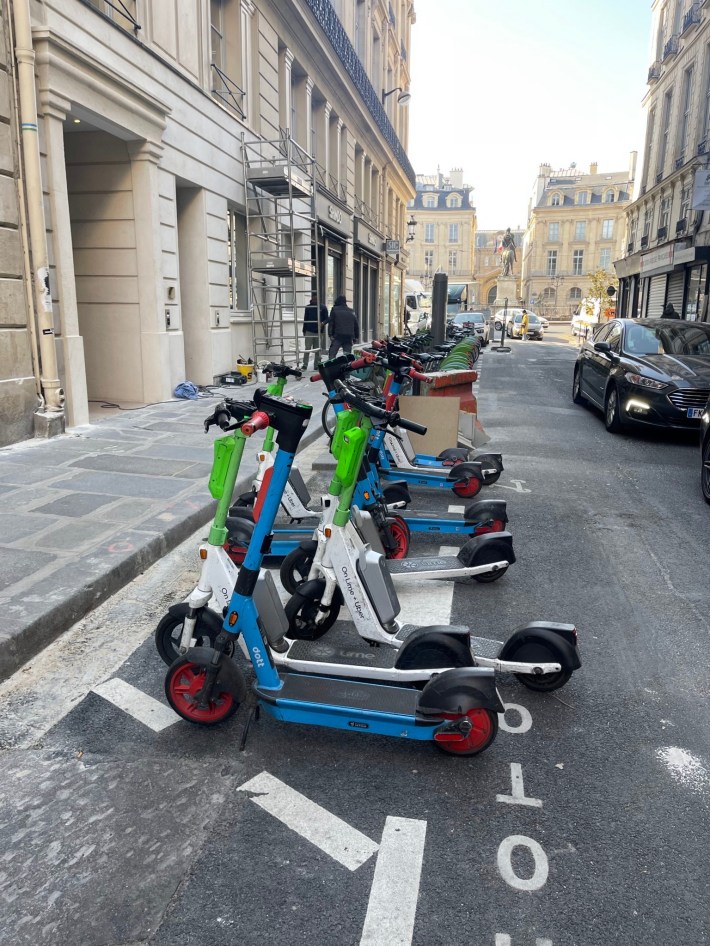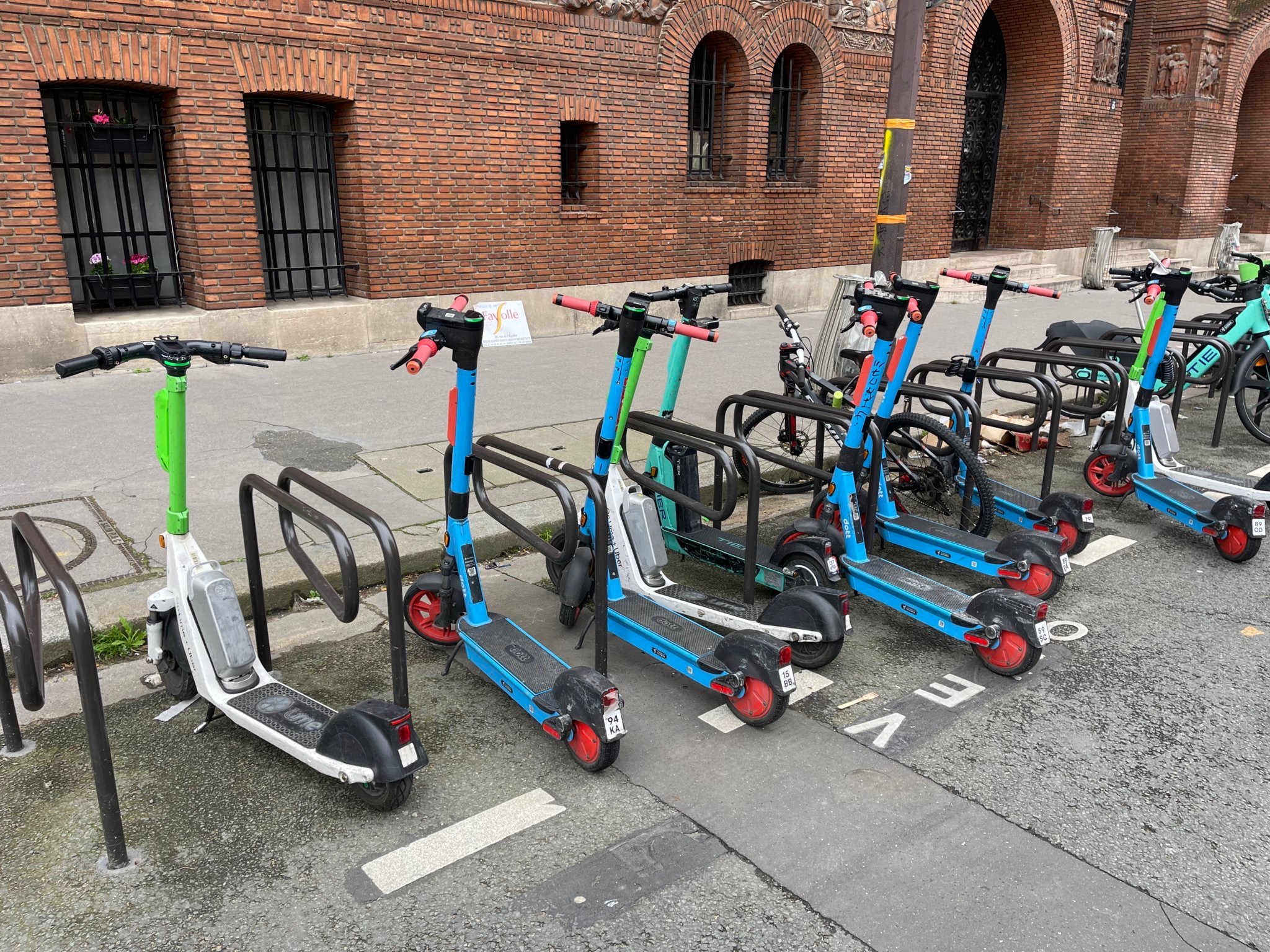Editor's note: On Sunday, April 2, roughly 103,000 residents of Paris voted to ban the use of shared e-scooters on its streets. We're publishing this op-ed, in part, for the consideration of U.S. policymakers who may be considering similar legislation. Op-eds do not necessarily reflect the view of Streetsblog editors.

For the global city that has put the world on notice over the past decade for embracing sustainable transport, Paris recently took a disappointing step backward by enacting a ban on shared scooters, known locally as trottinettes.
Set to take effect the first of September, the ban is a result of a public referendum that attracted comically-low turnout: just above seven percent of eligible voters decided the fate of this human-scaled and zero-emission mode. This regrettable outcome, in a city that has otherwise embraced non-car travel to a considerable extent by investing in bike lanes, bus lanes, and passenger rail, is the result of small, but meaningful errors from both the private scooter operators, as well as Paris Mayor Anne Hidalgo herself.
For context, five years ago Paris embraced the embryonic world of ‘micromobility,’ or lightweight, all-electric vehicles like scooters that could be rented via mobile applications. Suddenly, trips that were too long to walk but too short for a taxi or the metro could be covered easily and in an enjoyable way, rather than going largely overlooked by policymakers. The image of Paris as a quintessentially romantic city was expanded to include couples sharing a scooter ride on the way to dinner, clinging to each other as well as the vehicle. Perhaps most importantly, the city’s massive but often-malfunctioning bikeshare system, Vélib’, had meaningful competition for the first time.
At first, the sheer number of vehicles overwhelmed the City of Light – one industry analysis indicated Paris was third in Europe in terms of shared bikes and scooters per capita – which lead to actual issues in terms of sidewalk clutter. In response, Paris course-corrected and shrunk the number of licenses given to scooter companies to just three, and the overall vehicle count to 15,000. Scooters on shared platforms added safety features like on-board speed governors that limited top speeds, and reduced vehicle even speeds further if they passed into certain public squares, such as when crossing République. What’s more, trips could not be ended unless scooters were parked at bike corrals and other curbside zones.

Still, the remaining operators, there was one important strategy that Lime, Dott, and Tier did not try, despite its success in other markets: locks.
In San Francisco, all shared scooters have attached locks, with which the rider can secure the vehicle at the end of a trip. That simple device dramatically decreases problematic scooter parking, turning a once-contentious mode in San Francisco into an afterthought for those not riding them. Though there is some evidence that lock requirements reduce overall ridership, because they can sometimes fail to unlock and add friction to the rental experience, such an adjustment may have neutralized a leading criticism of scooters within Paris.
Still, blame for this result primarily falls at the steps of City Hall — and putting up the question of the legality of a single mode of transport to a referendum was quizzical at best.
In a recent interview Mayor Hidalgo said of the pending vote: “April 2 will be a democratic exercise that we’ve never done before. It’s the first and it won’t be the last.” But of course, there will be no forthcoming referendum on the legality of automobiles in Paris, the transport mode that by far causes the most damage, both in terms of roadside fatalities, and the fouling of the air all Parisians breathe, ranking the city near the worst in all of Europe. No matter that scooters have been involved in fewer fatal crashes in their entire existence in Paris than cars cause in a month, or that they are 100 percent battery electric, a figure Paris’s automobile fleet will not reach for many years. Will Parisians be allowed to vote down tobacco shops, or music halls, or any other business category that causes a slight nuisance?
Of course, Paris will still have trottinettes after the ban goes into effect this fall, because it does not affect privately-owned scooters. But the option for anyone to rent one at the snap of their fingers will disappear. Commuters wanting to solve the eternal ‘first-mile, last-mile’ problem, such as the distance between their home and rail station, or rail station and office, can no longer rely on the simplicity of a publicly shared scooter. The mobility ecosystem here will become smaller, and a mode that nearly perfectly matches Paris’s narrow streets and its desperate need for car alternatives will effectively disappear for many.
In the lead-up to the 2024 summer olympics in Paris, when the Metro is thronged and streets are snarled with car traffic, Parisians and tourists alike will no doubt realize the foolishness of their mistake.
Marcel E. Moran is a PhD Candidate in the Department of City and Regional Planning at UC Berkeley. He lives in Paris.






